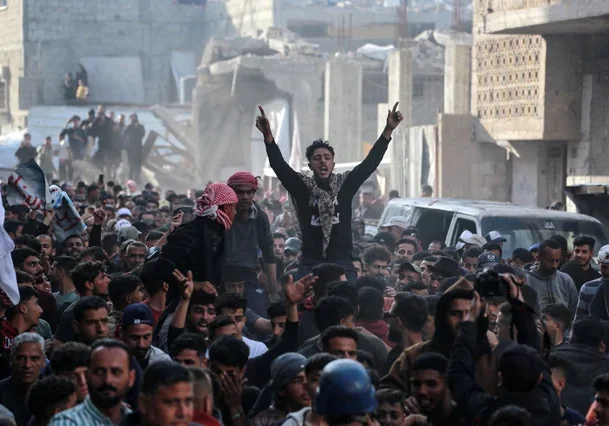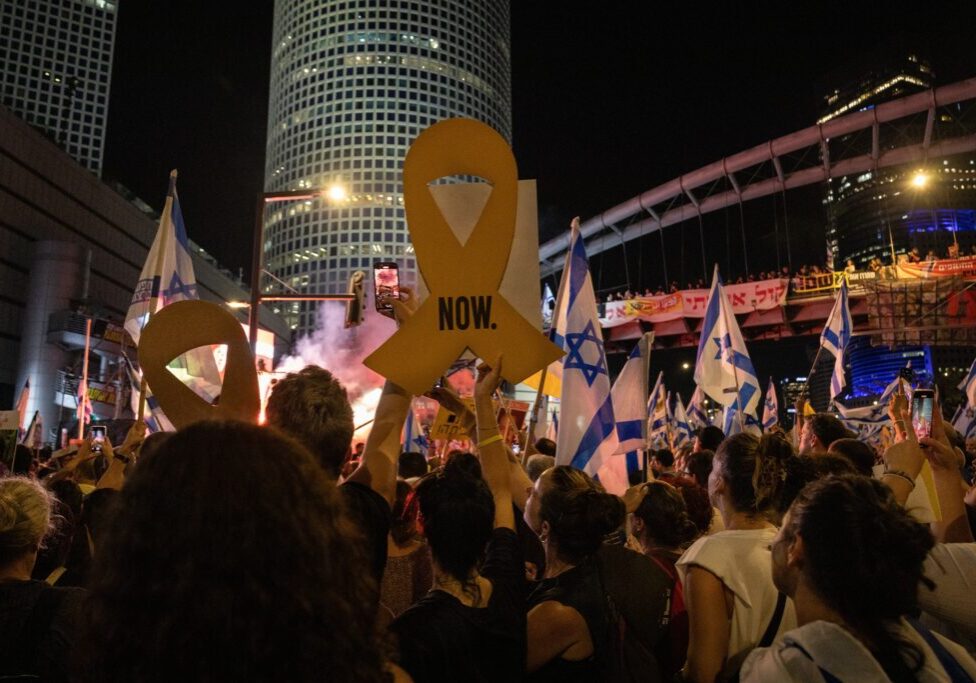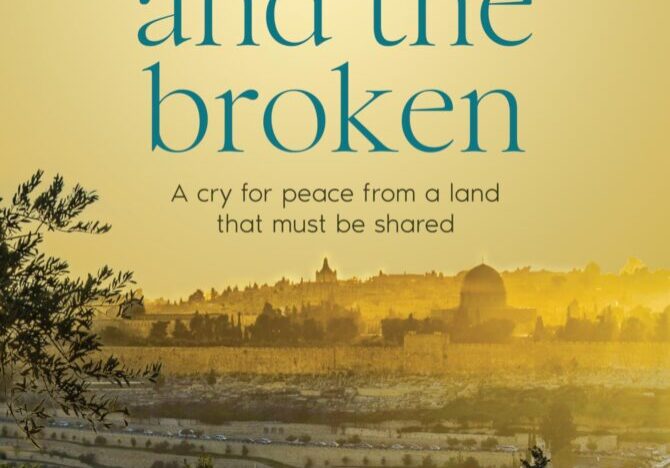Australia/Israel Review
Media Microscope: War Stories
Jul 10, 2015 | Allon Lee
Allon Lee
The overwhelming majority of the media coverage on June 23 of the United Nations Human Rights Council (UNHRC) report into last year’s Gaza war failed to observe that Israel was forced to fight an enemy deliberately operating inside civilian residential areas.
It appears only James Carleton discussed this point while arguing with Colonel Richard Kemp, former Commander of the British forces in Afghanistan, over the report’s impartiality.
Carleton queried claims about the report’s alleged biases, saying it accused Hamas of a “triple war crime” by firing rockets indiscriminately at Israeli civilian areas, using Palestinian civilians as human shields to protect rockets and publicly executing two dozen-odd alleged Palestinian collaborators.
Kemp listed reasons why the report was biased including its suggestion that “in some ways [it was] excusable for Hamas to be firing rockets from within the civilian population because Gaza is such a crowded place,” ABC Radio National “Breakfast”.
Middle East correspondent Sophie McNeill’s report on ABC Radio “World Today” mentioned that Hamas fired rockets at Israeli civilians and executed collaborators but not that it operated from residential areas.
On ABC TV “7pm News,” McNeill introduced her story with “one of the most shocking incidents of last year’s Gaza war” – four boys killed “playing on a Gaza beach”, saying it was “one of the tragedies [the] inquiry tried to investigate” but couldn’t because Israel had “den[ied] them entry into Gaza”.
In fact, as the UNHRC report noted, Egypt also denied the investigation passage through its border crossing, but McNeill didn’t mention this.
McNeill said Israel labelled the report “biased before it came out” but didn’t explain how the inquiry’s mandate prejudged Israeli guilt.
She included press pool footage of Hamas Deputy Foreign Minister Ghazi Hamad saying the report should have “blamed Israel that they did not give [investigators] permission to enter Gaza.”
Given that McNeill was in Gaza, she could have at least attempted to interview a Hamas official directly about the war crimes charges against it.
An eight minute report by McNeill on ABC TV “7.30” again sifted through the details of the beach incident, insinuating it was a war crime that went unpunished.
Her report’s attempt at balance was three Israelis who criticised the UN as biased against Israel, including one woman’s brief statement that the media is “not showing the hospitals or the schools that [Hamas was] launching rockets from”.
On ABC TV News24 “World”, Beverley O’Connor asked Lina Khatib of the Carnegie Middle East Centre in Beirut if the UN had “got it wrong” that Israel deliberately targeted residential areas when “families were sitting down to meals”.
Khatib said Israel is in denial when presented with “objective evidence” and even if it hadn’t intended, targeting civilians was unavoidable given “Gaza is one of the world’s most populated areas”.
Gaza is not that densely populated. According to the US Census Bureau’s 2012 Statistical Abstract, in 2010 Gaza had 11,542 people per square mile, while Monaco had 39,609, and Macau 52,163. It was Hamas’ deliberate strategy of operating in residential areas that caused civilian casualties.
On SBS TV “World News” a one-sided report from Jonathan Miller of Britain’s Channel 4 focused on the damage sustained to Gaza’s buildings but, again, failed to explain that Israel had to stop rockets being fired from residential areas. He said Israel used weapons “highly likely to result in indiscriminate killing”. In fact, compared to similar conflicts in urban areas elsewhere, the ratio of civilians to combatants killed was relatively low. No pro-Israeli perspective was included.
Fairfax Middle East correspondent Ruth Pollard, in an online report, implied the war was Israel’s fault, writing that “there’s not a high degree of optimism that anything will change in the current political climate with the two sides as far away as ever from reaching an agreement that might end Israel’s decades-long military occupation.”
Readers might have benefitted from knowing that peace is impossible whilst Palestinian society is split between Hamas, which demand’s Israel’s destruction, and the Palestinian Authority, which has rejected three Israeli offers of statehood since 2000, Age/Canberra Times/Sydney Morning Herald online.
Ahead of the report’s release, Independent columnist Donald McIntyre in the Canberra Times (June 20) blamed Israel for the war because “its operations in Gaza are inextricably linked with its military control of a Palestinian population under occupation” – Hamas co-founder Mahmoud Al-Zahar admitted in September 2012, “Gaza is free of occupation.”
Tags: Israel






